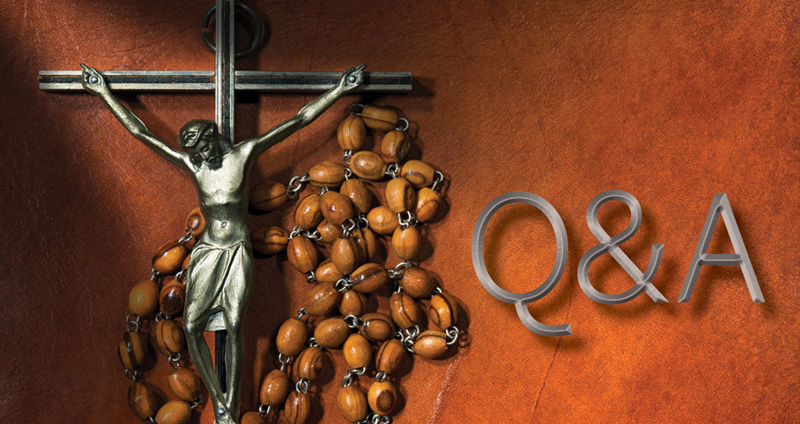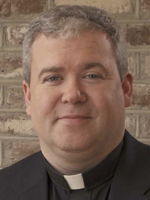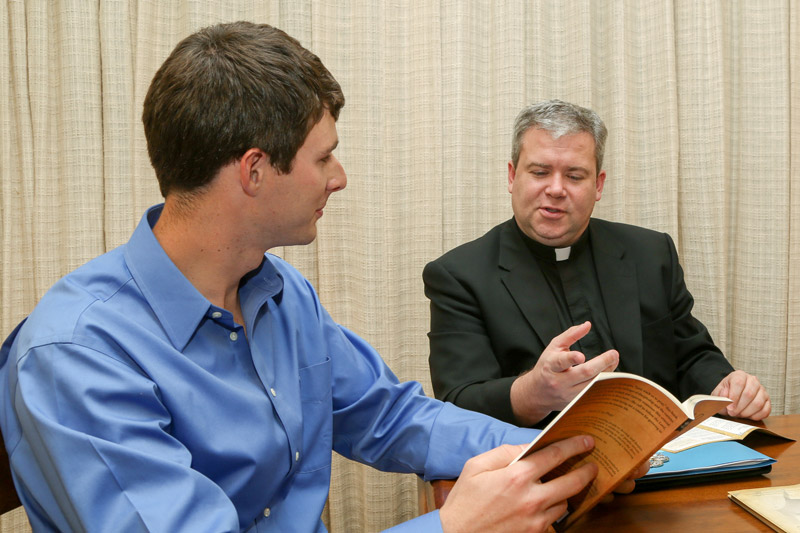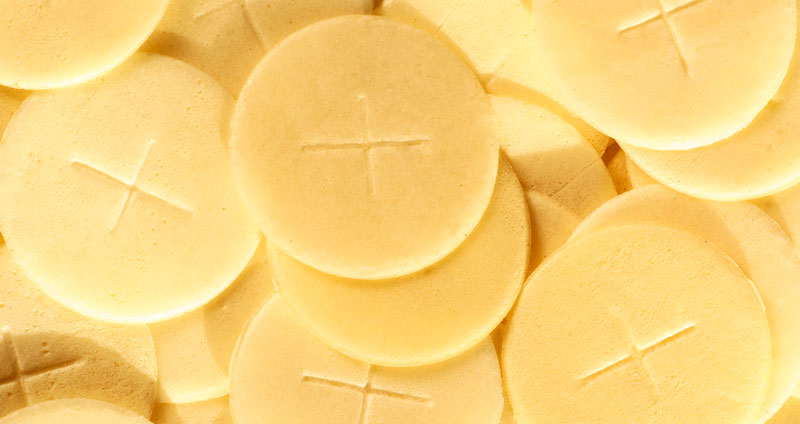
Q. My priest recently reminded us about the fast before Communion. He said that gum is a part of this fast. This just seems extreme to me. What if someone is chewing gum for fresh breath or for anxiety? (Greenville, SC)
A. The Eucharistic fast is one of the strictest fasts of the Church. This is because the fast is an immediate preparation for the reception of Holy Communion, which is one of the most sacred acts of the Christian believer. Whereas the fast once spanned from midnight until the reception of Holy Communion (which explains the name of the first meal of the day, namely, “break-fast”), and then was abrogated to three hours before Holy Communion, it now sits at only one hour before the sacrament is received.
The fast only permits water and necessary medicine. It prohibits gum, candy, coffee, tea, etc. While this may ruffle the feathers of some, it’s worth noting that the fast is only one hour, and the reason for its stringency is because the fast is one of the immediate ways in which we prepare to worthily consume the Sacred Body of our Lord and drink his Precious Blood.
Q. In a previous column, you wrote about annulments. I don’t need an annulment. I was married and my marriage was good when it existed. When it ended, it ended. I don’t need the Church to tell me it wasn’t good. (Washington, DC)
A. Thank you for your candor. I suspect this is the quiet opinion of many in the Church, especially if we compare the divorce rate with the number of those in the annulment process. The discrepancy speaks for itself.
I’m not sure if you have a question, or if you’re asking for a comment on your statements. I’ll assume the latter and simply respond that your comments are more in tune with someone with no faith or no Catholic faith. I don’t say this in judgment of you but of your views. And I say this because one of the fundamental beliefs of Catholic Christians is that the Church has the authority to interpret the Gospel and to speak on behalf of Jesus Christ. Catholics believe that the Church is a source and instrument of God’s grace.
Holding to this belief, Catholics acknowledge that the Lord Jesus entrusted the sacraments to the Church. In exercising this authority, the Church guards the dignity of the sacrament of Holy Matrimony. This includes a denunciation of divorce, “gay marriage,” and cohabitation, as well as prostitution and pornography.
By pastoral extension, the Church will discern a marriage to see if the sacrament was actually confected. If necessary aspects of the marriage were missing or incomplete at the time of its celebration, then the Church willingly declares the presumed marriage to be null and void. This frees the presumed spouses to marry another person.
If a believer dismisses the clear teachings of Jesus Christ on marriage, brushes off the sacredness of marriage by normalizing divorce, discredits the annulment process and sacred authority and pastoral care of the Church, then the person appears to be distant from the Church and the Gospel of Jesus Christ. In such cases, such people should sincerely ask themselves who or what they’re worshipping since their views are at such odds with revealed Christian truth.
For the believer, marriage is sacred. However, in spite of best efforts, sometimes a marriage may fail. In such cases, a divorce is approached with sorrow. If the person hopes to re-marry, then an annulment is absolutely necessary. If a person re-marries without an annulment, then the Lord Jesus describes that person as being in adultery. Adultery is a grave sin and removes the person (and the attempted marriage) from the flow of God’s grace. These are the beliefs of the Christian and they are not negotiable in any age or by any person.
Father Jeffrey Kirby is administrator of Our Lady of Grace Church in Lancaster. Because he is moving on to other projects after the summer months, Father Kirby is no longer taking questions for this column.




